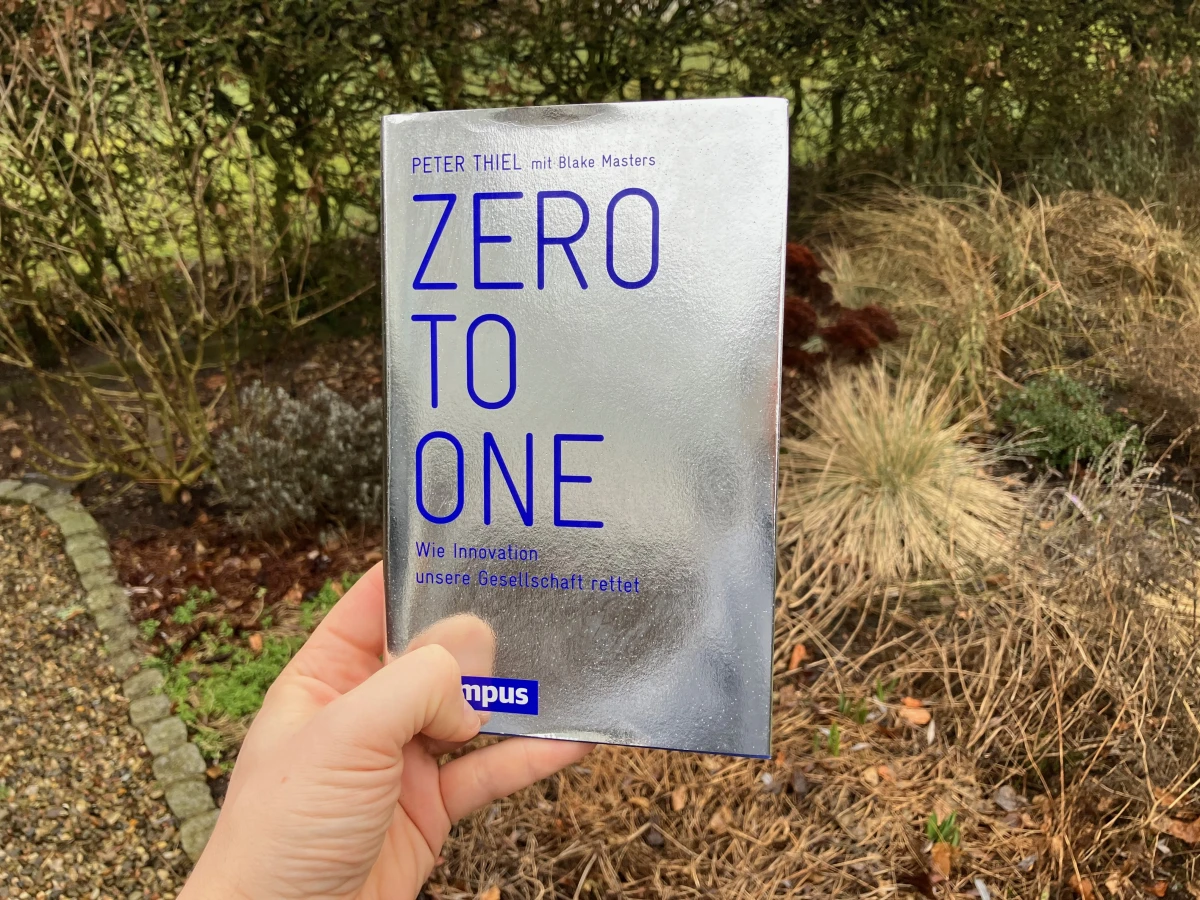Review "Zero to One"
In his book, a questionable author assists innovative founders who do not want to copy what already exists but want to create something new.

About the author
Peter Thiel is a controversial figure in public discourse. Some people see him as a visionary and innovative entrepreneur, while others perceive him as controversial and quick to react. His statements about racism and support for Putin stand out as mainly negative.
Peter Thiel is an American entrepreneur, lawyer, and politician. He was born in Frankfurt am Main in 1967 and studied law at Stanford University. After graduating, he founded Palantir Technologies and Founders Fund, where he is CEO. Thiel was also a co-founder of PayPal and later sold it to eBay for $1.5 billion.
What is the book about?
"Zero to One: Notes on startups or How to build the future" describes Thiel's view of innovation's role. He touches on topics such as competition and monopolists, criticizes the educational system's approach to paying too little attention to individual strengths, defines the necessary framework for successful start-ups, and emphasizes the relevance of sales as a key function.
What's great about it?
Looking at my own start-up experiences, I can only underline the relevance of Thiel's points. Founders need a shared history. They have to agree on a common set of values and live them as a company culture. And with all the innovation and good intentions, sales are needed—without them, the best product is worthless.
The seven questions starting on page 152 (German version) are good guidelines for the initial phase. The same goes for the tips on finding employees, guided by the question on page 119: why should the x-th employee start here of all places and not at another company with more prestige and money?
What's annoying about it?
The glorification of his PayPal team and the highlighting of Elon Musk disgust me in the times of the current Trump administration and his tech bros. I doubt that Musk was less xenophobic back then. Concerning Peter Thiel's emphasis on a shared history and value base of start-up founders, I get a lousy impression of the author.
The best quote
In his closing remarks, Thiel emphasizes a vital quality that we have forgotten through social media and brutalization:
Only if we see our world with new eyes and learn to be amazed again like the first people did can we recreate it and preserve it for the future.
Something can be made with a fresh and unbiased view of the world. That is why it is so important to take our young people seriously and, at the same time, guide them in the digital chaos. Nothing damages a young person's self-perception as much as constant criticism and hatred on social media.
Why every founder should read the book
As already indicated above, the book contains some questions that need to be answered in the early stages of the start-up and should be raised again and again later. In addition, Thiel explains the mechanisms and connections between competition, monopolists, and secrets.
Overall, the book offers diverse insight into start-ups and innovation. It explains conclusively what is essential when founding a company and which aspects are relevant. The focus is on the next unicorn, the significant (innovation) leap from 0 to 1, but the interested reader can also conclude smaller companies.